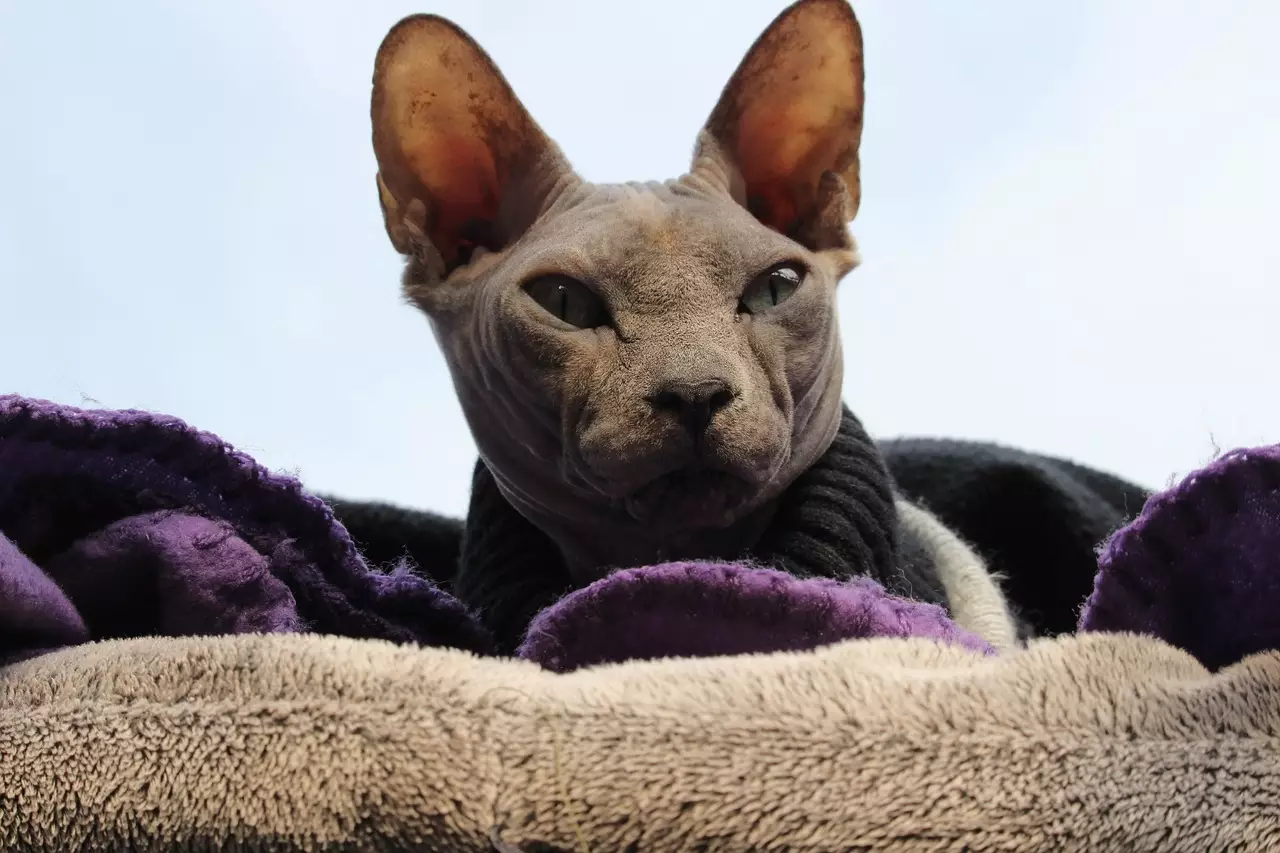Cats have carved out a substantial niche on the Internet, capturing hearts worldwide through cute memes and amusing videos. This visibility has certainly transcended to the offline world where cats are cherished companions, known for their independent yet affectionate nature. Pet owners often find solace in curling up with a soft, furry feline after a long day. However, a significant barrier exists for many potential cat lovers: cat allergies, which can prevent them from experiencing this bond.
Contrary to common belief, cat allergies do not stem from their fur. Instead, the culprit is a protein called Fel d 1, found in cat saliva, urine, and skin dander. This protein can trigger allergic responses in sensitive individuals, causing discomfort and making cat ownership a greater challenge. While no breed is entirely hypoallergenic, certain types of cats produce lower levels of Fel d 1 and might offer a more feasible option for allergy sufferers.
Among the breeds touted for their hypoallergenic properties, **Siamese cats** stand out due to their low shedding coat and striking appearance. Known for their distinctive blue eyes and vocal personalities, Siamese cats require considerable attention from their owners but are immensely rewarding companions. Their unique coat helps to minimize the spread of allergens, creating a more manageable pet ownership experience for those with allergies.
Another appealing breed is the **Balinese cat**, often referred to as the “long-haired Siamese.” These cats are known for their sociable nature and high intelligence. Their tendency to shed less helps in reducing allergens in the household, making them another viable candidate for allergy-stricken cat lovers. Balinese cats are perfect for families, combining charm and low maintenance needs, making them a delightful addition to any home.
Moving on to the intriguing **Sphynx cat**, this hairless breed is frequently thought to be ideal for allergy sufferers. While Sphynx cats do produce lower levels of allergy-causing proteins, maintaining their skin health requires regular bathing, as they can accumulate oils that may trigger reactions. Their playful and affectionate demeanor often draws people in, with many owners finding Sphynx cats to have dog-like qualities in their companionship.
For those drawn to wild aesthetics, **Bengal cats** present a stunning option with their sleek, spotted coats reminiscent of leopards. Though these exotic-looking pets can bring excitement and energy into a home, potential owners must be aware of local regulations governing exotic pets. Additionally, their engaged personalities necessitate mental and physical stimulation to prevent boredom.
The **Russian Blue**, known for its striking blue-gray coat, is a gentle and loyal breed, also producing fewer allergens. These cats are introspective and may prefer tranquil environments, making them suitable for individuals seeking a quieter companion. Ensuring regular grooming can further help manage dander and maintain their striking appearance.
Lastly, one might be surprised to learn about the **Maine Coon**, typically recognized for its size and long, beautiful fur. They are less likely to produce the troublesome Fel d 1 protein compared to other breeds. Their gentle nature and playful demeanor make them a favorite among families, proving that even larger breeds can be friendly towards those who might suffer from allergies.
For current cat owners who discover allergies manifesting despite their beloved furry friends, several proactive steps can mitigate allergen exposure in the living space. Creating a cat-free bedroom and utilizing covers on bedding can establish a haven from allergens. Using hardwood floors, as opposed to carpets, can be beneficial since dander tends to cling to carpets.
Regular cleaning is critical; frequent dusting, vacuuming—preferably with a HEPA-filter vacuum—and changing HVAC filters can significantly reduce allergens. Furthermore, owners might find relief by discussing cannabidiol (CBD) products with their healthcare providers, which have been suggested to alleviate allergy symptoms. However, caution should always be exercised, ensuring that any supplement intended for pets is safe and appropriate before administration.
Interestingly, cats themselves can also experience allergies. Veterinary products are available that alleviate symptoms in felines, and consultations with a veterinarian can help identify suitable treatments. For pet owners considering CBD, it is crucial to seek professional advice to ensure the safety and appropriateness of any interventions.
While cat allergies can present a challenge, they need not be an insurmountable barrier to feline companionship. By carefully selecting hypoallergenic breeds and implementing measures to mitigate allergens in the home, individuals can enjoy the warmth and joy that cats bring while managing their health proactively.


Leave a Reply